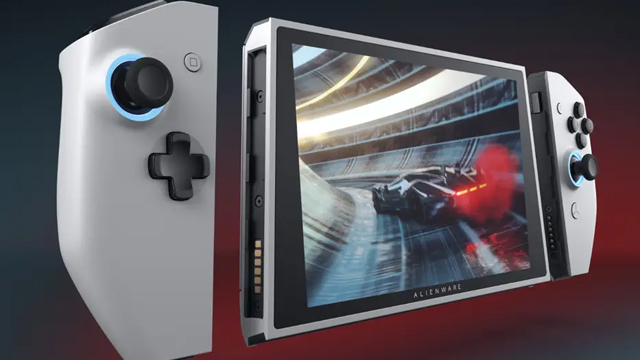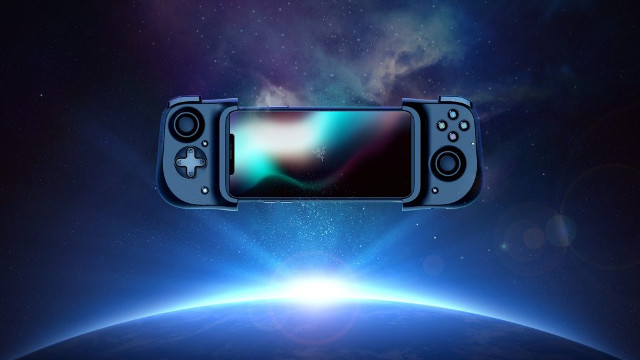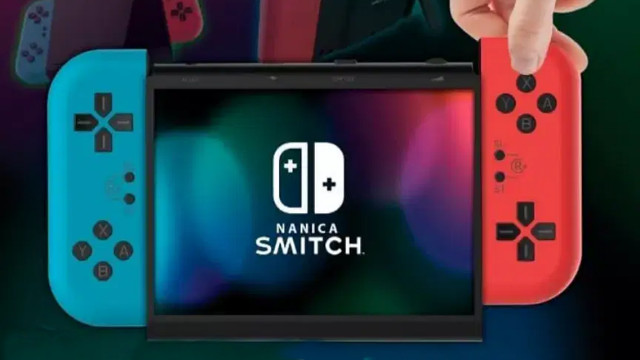The Nintendo Switch has been out for almost three years, building up a healthy library of games and even getting a couple of new editions released with a higher battery life model and the Nintendo Switch Lite. It seems that Nintendo has had some success with the design, and it also appears to be kicking off a wave of Switch-alikes.
What is a ‘Switch-alike’?
Before we go on, the first thing we need to do is define what exactly a “Switch-alike” is. At its face, a Switch-alike can be said to be a gaming machine that looks like a Nintendo Switch, but I think the definition would have to be more complex than that.
ALSO: PS5 logo reactions are exactly what you’d expect
For example, if the qualifiers were something like “A gaming system with controls on either side of the screen,” the PS Vita would technically fall under this category. That’s why I think detachable (but still functional) components are a key part of the definition.
So in short, the definition of a Switch-alike is, in my eyes, as follows:
- A portable gaming system with the controllers on either side of the screen.
- The controllers must be detachable and functional when detached.
The Alienware Concept UFO
Our first contender in the Switch-alike arena is the Alienware Concept UFO portable gaming PC. Introduced during CES 2020, this concept PC meets all the criteria per my definition — and it looks pretty cool to boot.
Of course, it can be used as a handheld device with the controllers attached. You don’t have to, though — you can also detach the controllers, set the screen down, and play it that way. It includes an 8″ screen running a 1900 x 1200 resolution, which is actually an improvement over the Nintendo Switch’s 6.2″ screen running a 1280 x 720 resolution (a.k.a. 720p).
Introducing #ConceptUFO, our vision for a handheld gaming PC. Explore the details that went into making this innovative design. @Formula1game https://t.co/plRqDvxsD8 pic.twitter.com/tx3apeHNhl
— ALIENWARE (@Alienware) January 7, 2020
According to a blog post over at Dell (Alienware’s parent company), the company has spent “hundreds — if not thousands — of hours” working on the controller for the Alienware Concept UFO gaming PC. The controllers do have some notable differences from Joy-Cons such as the lack of the four buttons on the left controller and the light-up joysticks.
While the Alienware Concept UFO is certainly cool, the big bugbear is right there in the name: concept. Just like a concept car, this is a thing that was made to show off an interesting design and is not currently available for purchase. Considering the success of the Nintendo Switch, that’s something that could very well change in the future.
Third time’s the charm with the Razer Kishi
Razer, too, has decided to enter the Switch-alike arena with the Razer Kishi. It seems like a pretty refined design which makes a heck of a lot of sense: this is (at least) the third time they’ve publicly released a product of this type.
Firstly, we need to go all the way back the simpler days of 2013. Tablet gaming was still largely restricted to cow clickers and Candy Crush, so Razer decided to shoot for the moon with the Razor Edge (as seen in the image above). It looks awfully silly today, but it was pretty revolutionary at the time.
Unlike the Nintendo Switch, the controllers didn’t detach from the device; rather, the entire tablet rested in a big, boxy portable dock that the controllers were a part of. It was an intriguing design, but it ultimately went nowhere and soon faded into obscurity.
Years later, the Razer Junglecat (seen above) arrived. Now this is what we’re talking about: a pair of controllers that can attach to the side of a phone with a specialized case or be used as standalone devices.
Unfortunately, the Razer Junglecat was just a wee bit too niche; it only worked with a handful of Android phones. It’s still very much available for purchase at the price of $99.99 or your regional equivalent, but why buy that when you’ll be able to get the much cooler Razer Kishi:
Also revealed as CES 2020, the Razer Kishi is basically a straight improvement over the Junglecat. It works with many, many more phones and also includes Apple devices this time around. Heck, you can even actually connect it to your phone using a USB-C or Lightning cable for lower latency and device charging while you play. That’s pretty awesome.
While Alienware’s Concept UFO is undeniably cool, the Razer Kishi has one key advantage in the world of Switch-alikes: it’s actually going to be released for purchase sometime in 2020. No price has been announced, but I’d wager that it will be somewhere between $99.99–$129.99.
The dark side of Switch-alikes: the Nanaca Smitch
So far, we’ve seen serious endeavors at creating Switch-alikes from two reputable companies. Unfortunately, the Nintendo Switch has also inspired another type of game console designer: the bootleggers.
Enter the Nanaca Smitch, a hilariously bad knockoff that’s reportedly priced at 1/6th the cost of a Nintendo Switch. While it might cosmetically resemble a Nintendo Switch and even has detachable controllers, it’s a very different machine.
Let’s address the elephant in the room: yes, it is yet another one of those gaming consoles with hundreds of bootleg ROMs. However, it uses AAA batteries to power the knockoff Joy-Cons and an older-style video cable rather than an HDMI setup. Suffice to say, it’s not quite on the same level of tech as the Nintendo Switch and the other Switch-alikes we’ve seen here.
Mind, the Nanaca Smitch is far from the only knockoff Switch-alike — there are sure to be plenty on sites like Alibaba and shadier electronics stores throughout the world. Still, it goes to show that while some Switch-alikes are iterating on the Nintendo Switch’s basic design, others are taking the concept down a dark path.
[Images credit: Alienware, Razer, Olx]














